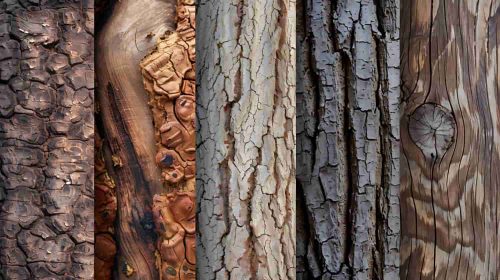Which type of bark is best for my garden?
Landscaping bark is a decorative, sustainable covering that can transform your garden in myriad ways
Landscaping bark is a decorative, sustainable covering that can transform your garden in myriad ways.
Most gardening experts now don’t question why it should be a garden essential. Instead, they focus on the types of bark that will be most effective.
If you’re in doubt, then carry on reading because here we’ll outline the reasons why it’s a worthy investment.
Why is bark used for landscaping and gardening?
Landscaping bark keeps your garden low maintenance by suppressing weed growth, cutting down on water, and helping to improve the health of the soil.
Using landscaping bark not only results in aesthetically pleasing spaces, but it’s also an excellent way to implement sustainability.
With that in mind, if you want to enhance the appeal of your outdoor space while promoting environment-friendly garden practices, this is definitely a simple, affordable approach.
How does using bark help the environment?
Creating a beautiful garden requires plenty of work, so anything that helps to reduce the burden of weeding and fertilising has to be good, right?
A growing concern for most gardeners is the environmental impact of certain products, and this is where landscape bark comes into its own.
It’s a brilliant product if you have a green conscience.
Here’s why.
Improves soil health
When bark is applied as mulch, it breaks down over time and naturally enriches the soil with essential nutrients, enabling the microorganisms necessary for plant growth to thrive.
Bacteria and fungi, which grow in the decomposing bark, feed the plants and reduce the need for environment-damaging synthetic fertilisers.
Helps support soil structure
As well as boosting nutrients in the soil, landscape bark enables plants to absorb them more efficiently helping facilitate air and water penetration.
Improved soil structure also means that their roots grow stronger and better.
Cuts down on water usage
One of the main things barks does is help the soil to hold on to any moisture and slow down water evaporation.
This means that plants do not have to be watered as often, which is not only good for the environment but also more cost effective for the gardener.
Supresses weeds
There are numerous herbicides on the market that can help stop weeds from proliferating. However, bark mulch prevents weeds from getting any sunlight and thus inhibits their growth.
Controls erosion
A layer of bark acts as a barrier, shielding soil from wind and rain. It also prevents topsoil from being swept away; a situation which could otherwise lead to sedimentation in local waterways.
Encourages biodiversity
Different types of garden bark are an excellent way of encouraging a whole range of beneficial insects to thrive, while at the same time deterring garden pests. That means you’ll be able to lay of harmful pesticides while creating a wonderfully balanced eco system.
Carbon sequestration
Using bark in gardens helps store carbon in the soil because it decomposes slowly over time, effectively removing carbon dioxide from the atmosphere.
Helps reduce landfill waste
Simply put, bark is a waste material that would otherwise find itself in landfill. By repurposing bark as mulch, you’ll be promoting a more sustainable way of gardening.
Deters pests
There are different types of bark that can be used for a more organic kind of pest control. Bark from, cedar, for example, can be an effective natural insect repellent.
Decorative and sustainable
Bark can give your garden a beautiful, natural look that will complement the rest of your scheme while remaining totally sustainable.
What different types of bark are there?
Landscape bark types are great for weed suppression and water conservation, but if you have a specific need for your landscaping project, then some will be better than others.
Here are some popular variations for you to consider:
Pine bark
Perfect for mulching, and will enhance the look of your garden thanks to its rich colour.
Cedar bark
This is the bark for you if you want to reduce insect damage.
Hemlock bark
Chose hemlock bark if you have pets, because this is less likely to cause an allergic reaction.
Oak bark
Great for controlling weed growth, retaining moisture, and protecting plant roots from extreme temperatures.
Composted bark
Great if you want to enrich your soil quickly and improve its structure and fertility.
Decorative bark
The choice if aesthetics is your priority.
Play bark
This is the one to choose for play areas and pathways given it’s the softest of barks.
Choosing the right type of bark for your garden
Hopefully, we’ve provided an overview that will assist you to make an informed choice about landscape bark.
However, if you need any more advice, then we’re here to help.
Send an email to hello@forwardbs.co.uk or give us a call by dialling 0151 357 1035.
Alternatively, complete our online contact form and a team member will reply as soon as possible.










The information below is required for social login
Login
Register
Fill in the form below to create your new account